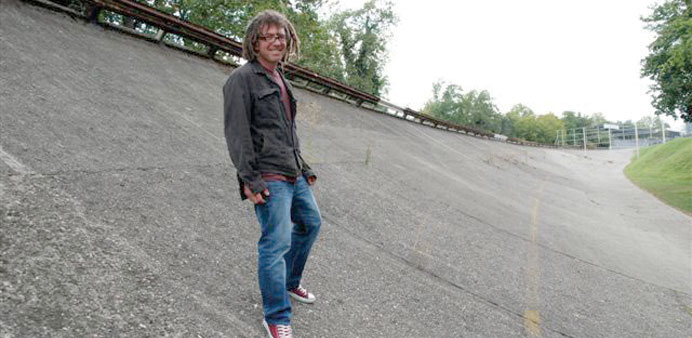By Denise Marray/GT London correspondent
“I think it’s great that the World Cup is going to the Middle East. Neither of the great sporting mega-events – the Olympics and the World Cup - has been to the Middle East or an Arabic speaking country, or indeed a predominantly Muslim country; so, it seems to me that the events that are meant to be a celebration of universal humanity should go the region. Plus, the people are crazy about football.”
This is the view of the British sports writer, broadcaster and author, David Goldblatt, whose book The Ball is Round: A Global History of Football gives extensive and well-researched insights into the game.
Putting aside the controversies surrounding the awarding of the World Cup, and looking forward, he said: “The deal is done and the timing issue has been resolved.”
Having visited the Gulf in the summer months (a trip to Dubai), he takes the view that moving the 2022 World Cup to the winter months was essential. “I think we have a reasonable compromise that it is going to be in November in Qatar,” he said.
He added: “I personally don’t have any problem with it disrupting European Leagues timetables. These things are a matter of scheduling and it can all eventually be dealt with. We shouldn’t get too worried about it.”
He feels more needs to be done to improve the working conditions of its large workforce building the infrastructure for the World Cup.
“There is going to be seven years of unrelenting focus on Qatar. Changes need to be made,” he said.
He hoped that the public spaces in Qatar would be able to accommodate what he termed the “collective party” that builds around the event beyond the stadiums. “You need people to be able to gather in public spaces in a spontaneous way,” he observed.
He doesn’t want people to be “stuck in the hotels”.
He noted: “People in this country, (the UK), particularly football fans, think nothing of going to the Gulf for the winter sun. I think a lot of people will want to go, but maybe not for a whole month as they did in Brazil.”
With regard to football, he observed that while it had been used negatively as a political weapon, it was nevertheless unique in terms of the scale of cultural interaction within the global sport. “It is a prism for understanding things and a gateway towards other cultures and ways of thinking that you don’t get in other spheres,” he commented.
Asked about his own passion for the game, he said: “My first love is Tottenham Hotspur, inherited from my father and grandfather, and for the last 12 years I have lived in Bristol and my second love is Bristol Rovers.”
He has just published his latest work, The Game of Our Lives: The Meaning and Making of English Football and is currently working on a new book about the history of the Olympics.

David Goldblatt: Qatar good location for FIFA World Cup.
